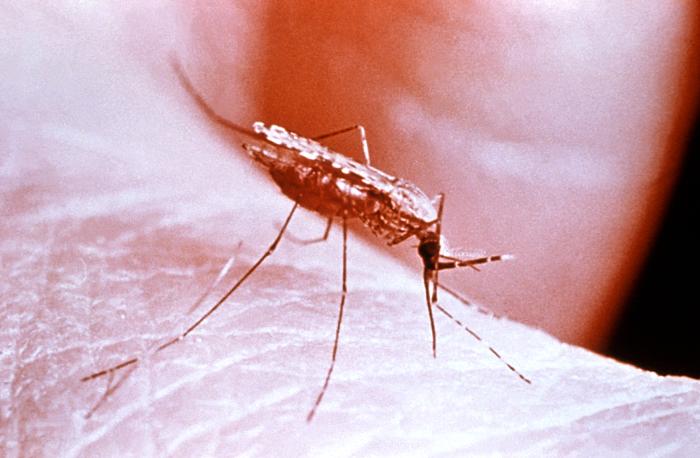Greek health officials have reported nine autochthonous non-Plasmodium falciparum malaria cases since August.

Image/CDC
Case investigation of the nine introduced cases (eight P.vivax and one P.non-falciparum) suggests the following:
- one P.vivax case with probable exposure at the Municipal Unit of Tichero, Municipality of Soufli, Regional Unit (RU) of Evros, with onset of symptoms the week of 20-26/08/2018
- one P.vivax case with probable exposure at the Municipal Unit of Feres, Municipality of Alexandroupoli, RU of Evros, with onset of symptoms in the week of 13- 19/08/2018
- seven cases (six P.vivax and one P.non-falciparum) with probable exposure at the Municipal Unit of Echedoros, Municipality of Delta, RU of Thessaloniki, with onset of symptoms of the patients within the weeks of 15/09- 05/10/2018.All cases of this cluster are considered introduced, i.e. 1st generation transmission from an imported case (as the time interval between symptom onset of the cases was limited, within three weeks).
In 2018, 47 total malaria cases have been reported in Greece as of late October, with the remainder being imported (37) or unclassified (1).
Among the 37 imported cases, 23 were immigrants from malaria endemic countries (17 from the Indian subcontinent and 6 from Africa) and 14 cases were travellers (from Africa).
Greece was declared free from malaria in 1974. However, since 2009 a number of locally acquired/introduced P. vivax malaria cases have been recorded in various areas of the country (i.e., among patients without travel history to a malaria endemic country), mainly as sporadic introduced cases but also in clusters (in 2011- 2012).
Related:
- Spain dengue: Two additional autochthonous cases reported in Murcia
- Dengue fever: Six local transmission cases reported in France
- Jerusalem measles: Doctors ‘afraid they’re losing control’
- Serbia reports 23 measles cases in past month
- Vancouver: Public safety advisory issued over botulism risk with Betty’s King Sauce
- Adenovirus outbreaks in New Jersey: Two additional cases reported
- Brazil: Family of seven contract Chagas disease from acaí


